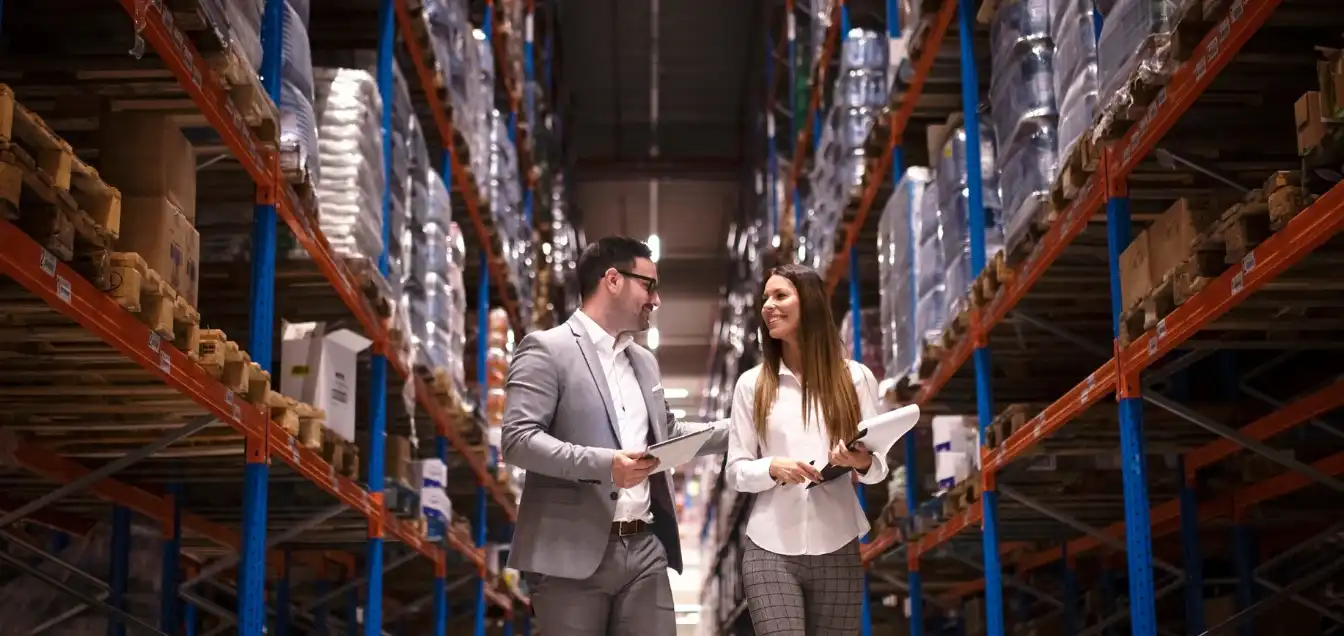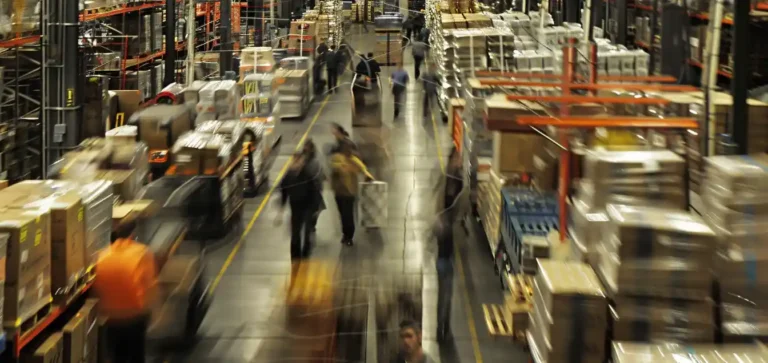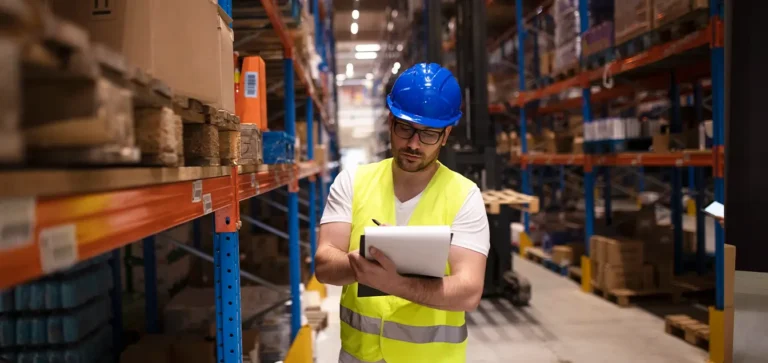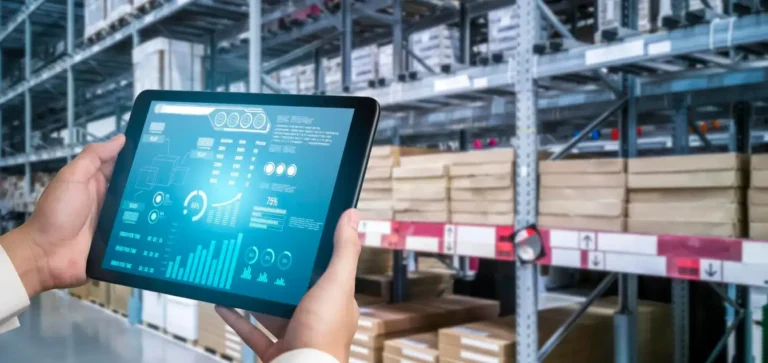In today’s rapidly evolving logistics landscape, businesses must invest in reliable warehouse facilities to fulfill customer expectations effectively. These facilities are not just storage spaces; they perform a critical role in the supply chain, influencing aspects ranging from inventory management to distribution efficiency. As companies strive for excellence, embracing key strategies to enhance the reliability and security of their warehouse operations is essential. This blog will examine various approaches to achieving this while emphasizing the importance of reliable warehouse facilities in ensuring seamless supply chains.
Table of Contents
The Importance of Reliable Warehouse Facilities

Reliable warehouse facilities are crucial for businesses aiming to deliver high-quality service, including those utilizing Canada 3PL solutions. They guarantee that products are stored securely and accessible for quick distribution, which is vital for maintaining customer satisfaction. According to a study by MHI (Material Handling Industry), companies that prioritize warehouse reliability see up to a 25% improvement in delivery times, thus reinforcing their competitive edge.
Businesses must adopt best practices to foster reliable warehouse facilities. This involves integrating modern technology, optimizing physical spaces, and developing effective employee training programs. Each element plays a pivotal role in reinforcing the foundations of a reliable supply chain.
Secure Warehouse Facilities: Implementing Safety Measures
The first step toward achieving reliable warehouse facilities is ensuring security and safety. Both employee well-being and inventory protection are paramount. Below are several effective strategies to secure your warehouse facilities:
1. Regular Safety Audits
Conducting regular safety audits is essential for identifying potential hazards within the warehouse and ensuring reliable warehouse facilities. Companies like Amazon and Walmart frequently perform extensive safety checks to mitigate risks while ensuring compliance with occupational safety regulations. For instance, a safety audit might reveal inconsistencies in ergonomic practices that, when corrected, can lead to reduced injury rates and increased employee satisfaction.
2. Advanced Surveillance Systems
Using state-of-the-art surveillance technology, such as AI-powered cameras and motion sensors, can significantly enhance the security of your warehouse. Continuous monitoring helps prevent theft or unauthorized access, which is particularly important for maintaining secure warehouse facilities. A case study from Hannaford Supermarkets revealed that enhanced surveillance reduced inventory loss by 20% within the first year of implementation.
3. Restricted Access Controls
Implementing restricted access controls ensures that only authorized personnel can enter certain areas of the warehouse. This can be achieved through the use of ID badges, biometric scanning, and security personnel presence. For example, a third-party warehouse services provider like DelGate uses a multi-layered security approach where only designated staff members can access sensitive areas, resulting in significantly lower security breaches.
Safe Warehouse Facilities: Employee Training and Awareness
A significant aspect of maintaining safe warehouse facilities involves comprehensive employee training. When workers are well-informed and trained, the risk of accidents and injuries dramatically decreases.
1. Comprehensive Training Programs
Investing in comprehensive training programs covering safety procedures, the proper handling of hazardous materials, and efficient usage of warehouse technology solutions creates a safe work environment and contributes to reliable warehouse facilities. Firms like FedEx regularly implement innovative training techniques, such as gamified learning platforms, leading to a 30% increase in safety compliance scores among employees.
2. Encouraging a Safety Culture
Establishing a safety culture within the organization promotes safer practices at all levels. By hosting regular safety meetings, encouraging employee feedback, and creating channels for reporting issues, businesses foster an environment where safety protocols are valued and prioritized.
3. Ongoing Safety Drills
Conducting ongoing safety drills not only enhances preparedness but also reinforces the principles learned during training sessions. Simulating emergency situations helps employees adapt quickly and respond effectively when real incidents occur. According to a survey, organizations that conduct regular drills see a 40% improvement in employee response times during emergencies.
Strategic Warehousing Solutions for Efficiency
Implementing strategic warehousing solutions can significantly improve the reliability of operations. Here are two effective approaches:
1. Optimized Layout Design
The physical layout of the warehouse plays a crucial role in efficiency and reliability. An optimized layout streamlines operations, reduces unnecessary movements, and enhances space utilization. Warehouse Management Systems (WMS) assist in creating layouts that minimize travel distances and improve workflow efficiency. For instance, a study showed that companies that optimized their layouts could increase pick rates by up to 30%.
2. Inventory Management Systems
Integrating robust inventory management systems ensures that stock levels are tracked accurately and replenished timely, which is especially important for businesses utilizing 3PL fulfillment in Canada. These systems provide real-time data on inventory levels, usage rates, and reorder points, ensuring that products are always in stock. Companies employing fulfillment technology solutions often report higher accuracy and efficiency in their operations, leading to reliable warehouse facilities.
Fulfillment Services in Canada: The Role of 3PL

When discussing 3PL warehouse services in Canada, it’s essential to focus on how third-party logistics providers enhance the reliability of warehouse facilities while delivering the fastest shipping in Canada. Collaborating with Fulfillment Services in Canada can manage your inventory and fulfill orders quickly and efficiently.
1. Choosing the Right 3PL Partner
The selection of a reliable 3PL partner can significantly influence your logistics strategy. Researching potential partners, such as DelGate, Kuehne + Nagel, and DHL, provides insights into their capabilities and reliability. For example, Maersk, a major global player, has streamlined its fulfillment services for clients, showing that companies collaborating with trustworthy 3PLs see substantial improvements in reliability and overall performance.
2. Benefits of Using 3PL
Outsourcing fulfillment services to a 3PL enables businesses to focus their resources on core competencies, leveraging the operational expertise of third-party logistics providers. These partners offer a wide range of services, including distribution management, inventory optimization, and more, making them vital players in the pursuit of reliable warehouse facilities.
Table: Comparison of Leading 3PL Providers in Canada
|
Company |
Services Offered |
Reliability Rating |
Average Fulfillment Speed |
Location |
|
DelGate |
Fulfillment, Returns, WMS |
4.8/5 |
2 days |
Various Locations |
|
Kuehne + Nagel |
Logistics, Freight Forwarding |
4.7/5 |
3 days |
Montreal |
|
DHL |
Express Shipping, Fulfillment |
4.9/5 |
1 day |
Various Locations |
|
FedEx |
Parcel Delivery, WMS |
4.6/5 |
2 days |
Various Locations |
|
Purolator |
Logistics, Freight Forwarding |
4.5/5 |
3 days |
Nationwide |
Types of Warehouses and Their Reliability
Understanding the different types of warehouses is essential in identifying the most suitable facility for your business. Each type offers distinct advantages that contribute to the reliability of your supply chain.
1. Public Warehousing in Canada
Public Warehousing in Canada allows businesses to lease space on a short-term basis, providing flexibility and scalability during peak seasons. These facilities are ideal for organizations looking to manage fluctuating inventory levels without incurring the overhead costs of long-term leases, thereby enhancing operational reliability.
2. Private Warehousing
Private warehouses are owned or operated by the company, offering greater control over storage, logistics processes, and customer service. They cater to businesses with stable inventory needs and are a solid investment in enhancing reliable warehouse facilities while fostering personalized service and improved reliability.
3. Hybrid Warehousing
As the market evolves, many companies are adopting hybrid warehouse models, combining aspects of both public and private facilities. This approach allows for greater flexibility, ensuring that businesses can scale operations according to specific needs. For example, during seasonal spikes, hybrid warehouses can accommodate fluctuating inventory levels while maintaining reliability.
4. Automated Warehousing

Automated warehouses leverage cutting-edge technology, including robotics and AI systems, to manage inventory and optimize processes. These facilities can significantly improve efficiency and reliability, reducing lead times and minimizing human error. Companies like DelGate have adopted automated systems that revolutionize their inventory management, achieving faster fulfillment and greater accuracy.
5. Cold Storage Warehousing
For businesses dealing with perishables, cold storage warehouses are critical. These facilities maintain specific temperature conditions, preserving the quality of products, which is vital in the food and pharmaceutical industries. Reliable cold storage ensures minimal spoilage and enhances consumer confidence.
Conclusion
Investing in reliable warehouse facilities entails implementing strategic measures and utilizing both technology and partnerships effectively. By addressing security, efficiency, and employee training, businesses can guarantee that their warehousing operations are secure, efficient, and equipped to meet customer demands in an increasingly competitive landscape.





